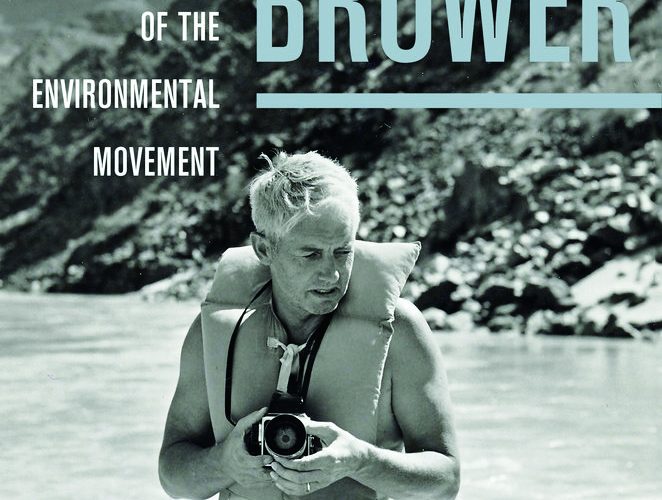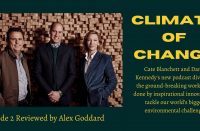In a sentence, David Brower was the single most influential force on environmental policy in the United States and on the environmental movement both in Canada and the United States in the 20th century. Having been born in 1912 and lived to 2000, his life almost spanned the century. It is this life that Tom Turner, Brower’s long-term friend, colleague and occasional critic, describes in his book. In four sections that move smoothly from Climber to Campaigner to Visionary to Evangelist, Turner follows Bower’s life and describes how each phase built on earlier phases.
To be clear, it is the text that moves smoothly, not David Brower’s life. In Turner’s words, “He was a many-sided character, who attracted both fervent admirers and dedicated enemies.” Indeed, I would say that many of those with whom he worked were both fervent admirers and dedicated enemies. Brower was a tenacious fighter for better governmental policies, and more than anyone else he expanded the focus of those who fought with him from a conservation program to an environmental movement.
No person can fight so hard for 75 years without a strong sense of being correct, at least for the immediate battle. “He was quick to support any idea or proposal that had promise, whether it was practical or not.” At the same time Brower was among the first to recognize that all environmental issues are ultimately political. Whether David Brower was equally wise when dealing with management issues is a different question. He is quoted as saying, “process is that which gets between where you are and where you want to be,” and, in Turner’s own words, that unwillingness to deal with process got “Brower into trouble more than once – far more than once.”
Brower’s uncompromising character made it hard for him to work comfortably within the financial and organizational strictures of naturally more cautious Boards of Directors. (That caution is why boards of directors exist!) Thus, as Turner explains with remarkable candor and considerable detail, Brower was forced to resign as executive director of the Sierra Club, he shifted quickly to help found Friends of the Earth, and then some years later to found Earth Island Institute. (Full disclosure: When Friends of the Earth Canada was founded, I was its president and as such had a vote on the American board. I can still remember the sense of regret when I cast my vote against David as president.)
If I have any complaint about Turner’s biography of David Brower, it is his failure to recognize more fully the importance of some of those who worked so loyally with David. For example, Amory Lovins’ work on soft energy paths, most of which was done under the aegis of Friends of the Earth, is presented as helping to change Brower’s view from cautious acceptance of nuclear power to strong opposition. Lovins did more than that. Soft energy paths represented a seminal concept that could turn conventional energy policy on its head. Nor is anything said about the sensible decision to split Friends of the Earth-UK into two corporate bodies, one activist and the other research and education. Only the latter was tax deductible. Had that approach been taken by the Sierra Club in the United States, it would have been less vulnerable to attack by the Internal Revenue Service.
On one position, I do remember David having to back off. In the early days of Friends of the Earth International, he insisted that all international members carry the name, Friends of the Earth. That insistence came to an abrupt end when the West German group applying for membership pointed out that Freunde der Erde had been a Hitler youth group. No way they were going to accept that name!
Of course, Turner is writing a biography of one man, David Brower, not a history of the environmental movement. Nevertheless, some of these people were so critical to the results attained by organizations with which Brower is associated, that it would have been fitting to say more about them even if it made the book 25 pages longer.
With that exception, I cannot say enough positive about this book. True, Turner makes Brower the hero, but how could it be otherwise? His hero is not without faults, serious faults, but it is by looking at how the environmental movement overcame them that we learn how to keep the movement going. Imagine what could have been had we had a David Brower in Canada during the 10 years of the anti-environmental government of Stephen Harper.
Reviewer Information
David B. Brooks is a natural-resource economist and a member of Alternatives’ editorial board. He was a founding director of Canada’s Office of Energy Conservation, director of the Ottawa Office of Energy Probe, and, for the last 14 years of his formal professional career, associate director for environment and natural resource studies at Canada’s International Development Research Centre. When he is not in a canoe, he identifies ways to conserve fresh water.













